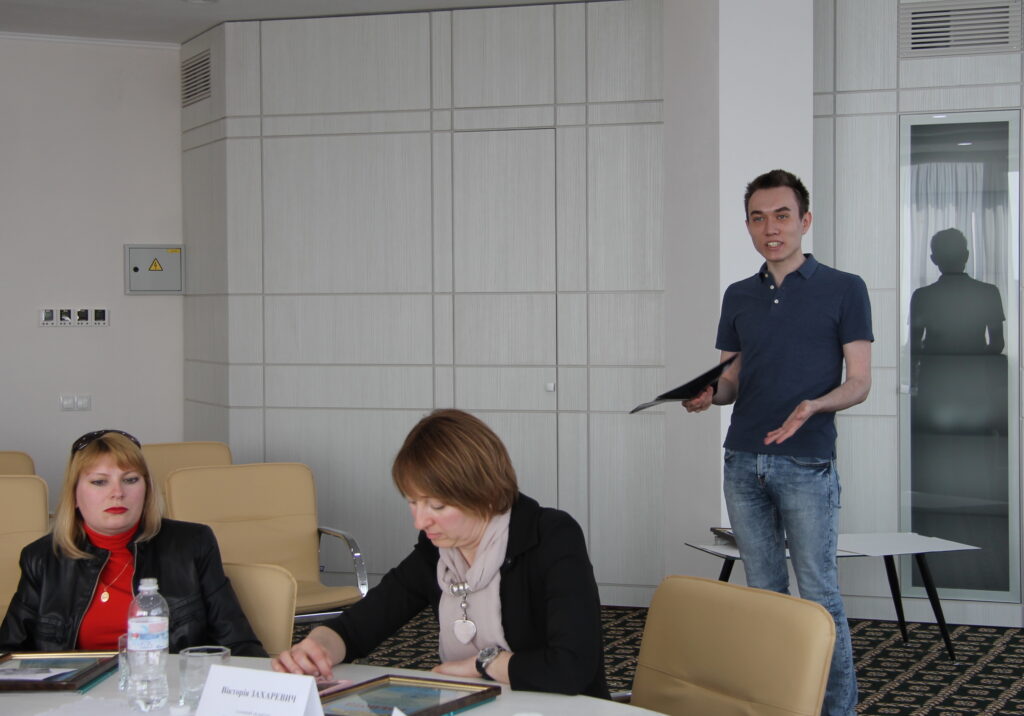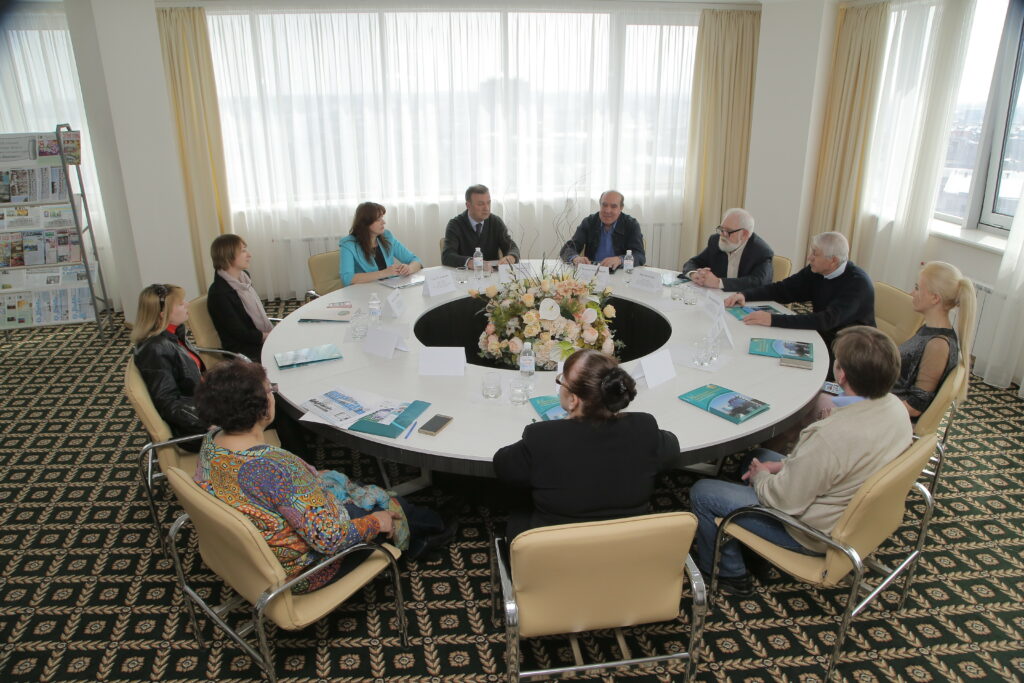
How universities and students can contribute to press freedom
When I think about freedom of the press, I imagine not only the absence of state-approved oppression and censorship, but also readers’ true devotion to the values of the free press. Indeed, independent media cannot exist without the readers being hungry for truly free, and bias-free, press. That is why I want to tell you about my experience as a Ukrainian law student connected to the issue of press freedom.
Since my very first year at Yaroslav Mudryi National Law University, I have been writing regularly for the university-based newspaper Vivat Lex. Looking back now, I see not only a long list of my publications – of which I am proud – but also a free, independent and youth-oriented newspaper to which I have had the privilege to contribute. In April 2018, Vivat Lex was named the winner of the IX University Gazettes competition & Litopys forum held in Kharkiv, a prominent university city that is for Ukraine as Boston is for the United States. Although it was Friday the 13th, it was a lucky day for us.
One of the obstacles for Eastern European democracies on their way to prosperity is sometimes the absence of willingness and enthusiasm among citizens and their will to have strong institutions and a transparent state. That is why it is so important that students begin to value free press that enables them to express concerns, share ideas and celebrate achievements. Indeed, Vivat Lex is one such example of this free press, and has been recognised as such by an independent jury comprised of members of the National Union of Journalists of Ukraine (Ukr. НСЖУ).
 Serhii Lashyn meeting with the University Press of Yaroslav Mudryi National Law University
Serhii Lashyn meeting with the University Press of Yaroslav Mudryi National Law University Meeting of the University Press of Yaroslav Mudryi National Law University
Meeting of the University Press of Yaroslav Mudryi National Law University Meeting of the University Press of Yaroslav Mudryi National Law University
Meeting of the University Press of Yaroslav Mudryi National Law University
So, what is the formula for a high-quality university medium?
From youth to youth
First, about the authors: if you aim to issue a newspaper about student life and student problems, the stories should be written by the students themselves. That is how you can achieve an objective view, unique insights and engage the student community. At least half of the content of our university newspaper is created by students. Second, university media should be free of charge. Students are almost always short of money. Higher education is an expensive thing, and paying for university media is not something students can always afford to do. Though this creates some possible issues, for example protection from outside influences and funding headaches, this is something that is vital to ensure a wide outreach.
Making the best use of technology
During a forum organised recently, I was honoured to deliver a speech on the problems and prospects for university journalism in Ukraine. One of the major issues I raised was the medium itself, in terms of how it is distributed. The paper format is something much of my generation sees more often in museums than in daily life. In 2016, The Independent, one of the United Kingdom’s most renowned newspapers, issued its last printed issue; now, the ‘paper’ can be found only in electronic format, online. This is becoming something of a global trend, and for university journalism, it is quite a problem. Admittedly, the electronic format is able not only to lower producing costs, but even to increase revenues. However, this is all about advertising. Such modern platforms as Medium and Issuu are not only free to use, but also offer an attractive advertising model and, of course, profits for publishers.
Rewarding contributors
Another problem for university journalism is money. In classic universities, journalism students tend to be the students who are most interested in contributing to the university newspapers. However, they also look to seek external opportunities – opportunities that may even offer salaries. So, if university newspapers want to attract the best of the best, they need to provide their student contributors with at least some form of reward.
Strong writing skills
Last but not least, journalism education is also an important factor for university press and the freedom of the press. In my opinion, journalism is not something that you can learn by heart, like a physics formula. Journalism requires an understanding of language and a refined style. One cannot find such a thing in a matter of weeks or months; these are skills that are acquired through years of practice and reading. Therefore, the content of university curricula for journalism students, their teachers and university environment are crucial for forming and maintaining a truly independent press.
At the end of the day, university press creates a sense of community. This spirit is of no less importance than the knowledge one gets through their university education. More importantly, free university press makes students used to having independent media at their immediate disposal – a must-have for civil society.
World Press Freedom Day on 3 May is not only the celebration of free journalism and a reason to talk about the problems in the field, but also a time to speak about long-term issues such as the perception of the free press. All in all, the press exists for its readers; as long as readers realise the true value of independent media and its place in democracy, the free press can live and thrive.
Serhii Lashyn – Ukraine
Stay informed about EU-Ukraine relations
Join the ‘Young European Neighbours’ network
I am Serhii, a Young European Ambassador from Ukraine. Currently, I study law at Ukraine’s biggest law school. I am in love with international law and European studies. That is why I have participated in a number of international competitions for law students and I am also involved in several projects aiming to develop civil society in Ukraine and strengthen the rule of law. The Young European Ambassadors initiative is a great forum for cross-border cooperation among young people across Europe. I firmly believe that my generation is the moving force for the European integration of Ukraine, as well as for further development and unity of the EU.
LATEST

Building Europe: Poland’s experience of joining the European Union and lessons for Ukraine

World Health Day 2024: My Health, My Right

EUREKA MEETS EUROPE – opportunities to develop and study. My experience

Can you wear pink in the workplace?

Go where your deepest fears lie: finding the courage to overcome gender barriers in STEM
More campaign pages:
Interested in the latest news and opportunities?
This website is managed by the EU-funded Regional Communication Programme for the Eastern Neighbourhood ('EU NEIGHBOURS east’), which complements and supports the communication of the Delegations of the European Union in the Eastern partner countries, and works under the guidance of the European Commission’s Directorate-General for Neighbourhood Policy and Enlargement Negotiations, and the European External Action Service. EU NEIGHBOURS east is implemented by a GOPA PACE-led consortium. It is part of the larger Neighbourhood Communication Programme (2020-2024) for the EU's Eastern and Southern Neighbourhood, which also includes 'EU NEIGHBOURS south’ project that runs the EU Neighbours portal.

The information on this site is subject to a Disclaimer and Protection of personal data. © European Union,